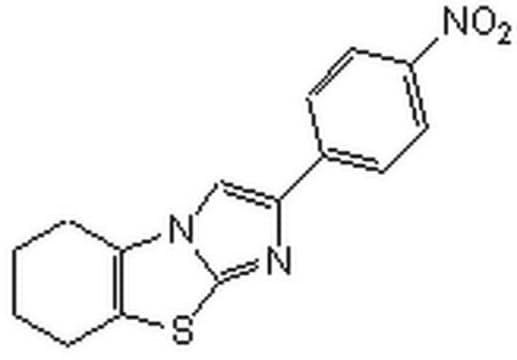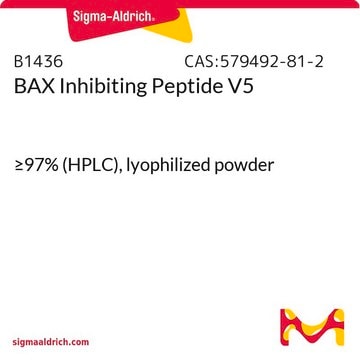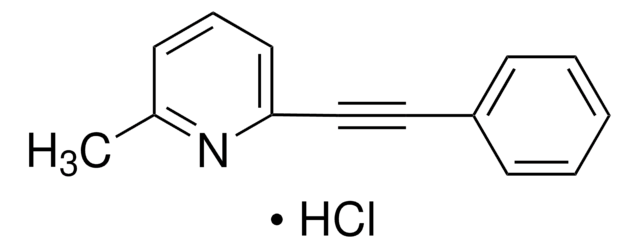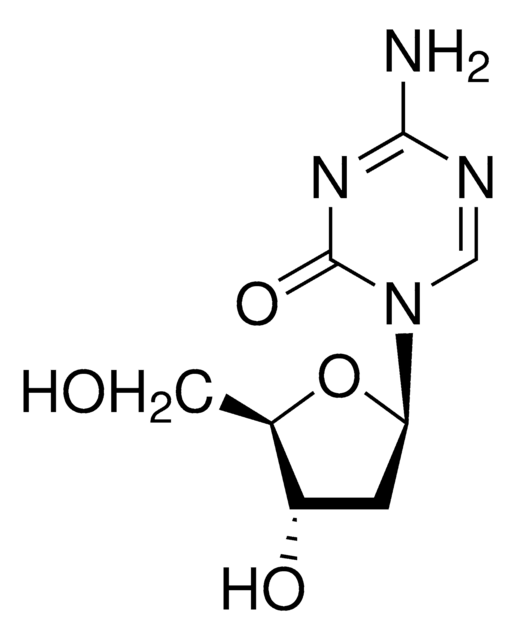P4359
Pifithrin-α
≥95% (HPLC), powder
Synonym(s):
2-(2-Imino-4,5,6,7-tetrahydrobenzothiazol-3-yl)-1-p-tolylethanone hydrobromide, PFT-α
About This Item
Recommended Products
Assay
≥95% (HPLC)
form
powder
storage condition
protect from light
color
off-white
mp
192.1-192.5 °C (lit.)
solubility
DMSO: 20 mg/mL
shipped in
wet ice
storage temp.
−20°C
SMILES string
Br[H].Cc1ccc(cc1)C(=O)CN2C(=N)SC3=C2CCCC3
InChI
1S/C16H18N2OS.BrH/c1-11-6-8-12(9-7-11)14(19)10-18-13-4-2-3-5-15(13)20-16(18)17;/h6-9,17H,2-5,10H2,1H3;1H
InChI key
HAGVCKULCLQGRF-UHFFFAOYSA-N
Application
- to study the effect of specific p53 inhibitor on p53-upregulated modulator of apoptosis (PUMA) expression after transient global cerebral ischemia (tGCI)
- as p53 inhibitor to treat PA1 cells
- as a tumor protein p53 (TRP53) inhibitor, to treat mouse lung epithelial-12 (MLE-12) cells
Biochem/physiol Actions
Features and Benefits
Storage Class Code
11 - Combustible Solids
WGK
WGK 3
Flash Point(F)
Not applicable
Flash Point(C)
Not applicable
Personal Protective Equipment
Certificates of Analysis (COA)
Search for Certificates of Analysis (COA) by entering the products Lot/Batch Number. Lot and Batch Numbers can be found on a product’s label following the words ‘Lot’ or ‘Batch’.
Already Own This Product?
Find documentation for the products that you have recently purchased in the Document Library.
Customers Also Viewed
Articles
Cell cycle phases (G1, S, G2, M) regulate cell growth, DNA replication, and division in proliferating cells.
Cell cycle phases (G1, S, G2, M) regulate cell growth, DNA replication, and division in proliferating cells.
Cell cycle phases (G1, S, G2, M) regulate cell growth, DNA replication, and division in proliferating cells.
Cell cycle phases (G1, S, G2, M) regulate cell growth, DNA replication, and division in proliferating cells.
Our team of scientists has experience in all areas of research including Life Science, Material Science, Chemical Synthesis, Chromatography, Analytical and many others.
Contact Technical Service















